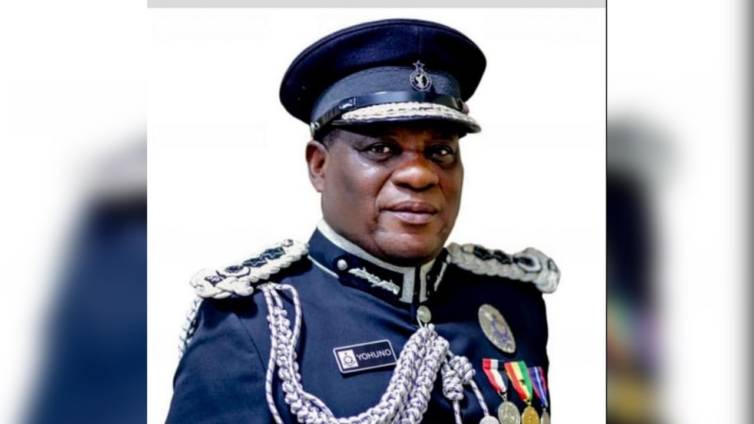Inspector General of Police, Christian Tetteh Yohuno, has issued a call for the country’s youth, particularly those in conflict-prone areas, to lay down their arms and take part in the recruitment process for the police force.
Mr Yohuno reassured young people in Bawku that they would have a chance to join the service, provided they meet the necessary requirements, after putting aside their weapons and embracing peace.
Addressing the press, Mr Yohuno noted the difficulties of achieving regional balance in the recruitment process, which has often been centralised at the national headquarters in Accra.
He expressed a desire to ensure that people from all parts of the country, including remote regions, are given the opportunity to apply for police service roles.
“I want to give the people the assurance that they can be recruited into the police service,†Mr Yohuno said.
“They should lay down their weapons, and once they do, they will have the opportunity to go through the normal recruitment process, just like anyone else.â€
He acknowledged that many areas of the country, such as Bawku, had been historically underrepresented in the recruitment process, leaving the country’s security services with a skewed regional composition.
Mr Yohuno explained that efforts would now be made to take recruitment beyond the major cities of Accra and Kumasi, extending it to more remote areas, where qualified candidates can be found.
“Many times, recruitment has been centralised in Accra, and as a result, we have not been able to achieve the full benefit of regional balance,†he said. “We want to ensure that recruitment now takes place in the remotest areas of the country, so everyone who qualifies will have the opportunity to join the service, regardless of where they come from.â€
Mr Yohuno shared the example of a policewoman from Bawku, who was selected for recruitment after demonstrating her abilities, including riding a motorbike.
He highlighted that the recruitment process focuses on merit and the ability to serve effectively, rather than on geographic location or past circumstances.
“There was no need to check whether she was capable of being recruited or not. She was chosen based on her abilities,†Yohuno remarked. “This is what we want for all youth in the country: an equal opportunity to serve, provided they meet the basic recruitment requirements.â€
The assurance to lay down arms is part of a wider effort to reduce conflict and create a stable environment in areas that have experienced security challenges.
Mr Yohuno emphasised that the success of this initiative would not only provide recruitment opportunities but also create a more peaceful environment conducive to development.
“We will be monitoring the situation for three days and nights to see if there are any instances of gunfire,†Mr Yohuno explained.
“If we don’t hear any, it means they have listened to our request, and it will signal that they are ready to welcome development and investment into their communities.â€
He further stressed that if the youth in conflict areas could demonstrate a commitment to peace, it would create a safer environment that would attract more NGOs, businesses, and international investors.
“The moment they put down their weapons, the doors will open for the development of their communities. When NGOs or embassies come to assess security and development in these areas, they will be able to say that the youth have laid down their arms and are ready to receive development,†he said.




No comments yet
Be the first to share your thoughts!